It is obvious the future skyline of Jerusalem, Israel, is changing daily, as buildings go up and up.
But centuries of history of Jerusalem are underground going back thousands of years.
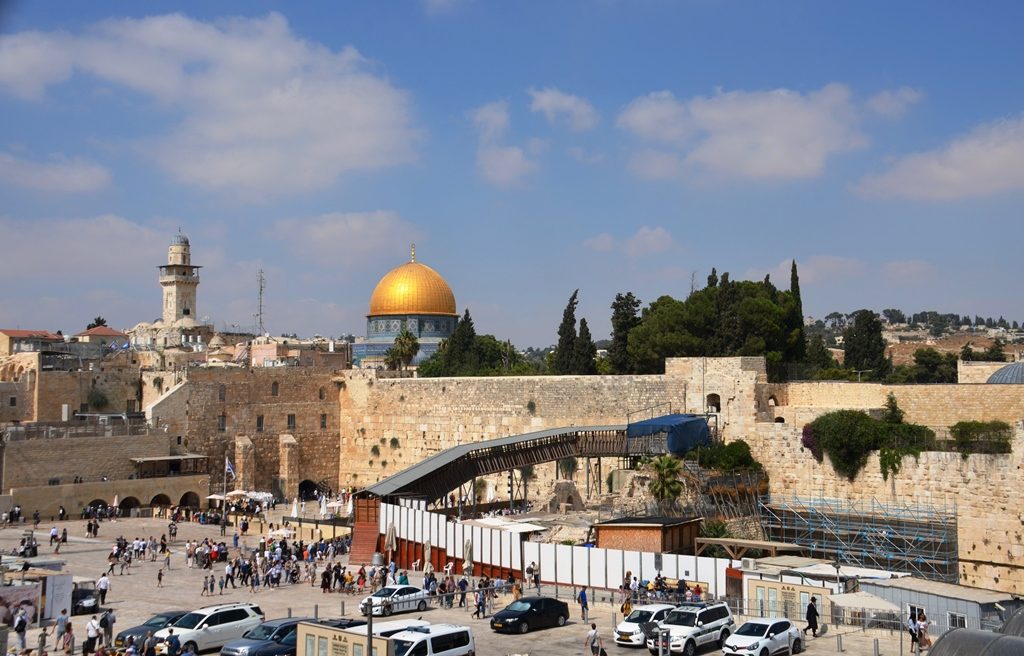
This is the image most think of when mentioning Jerusalem of old.
But under the Jerusalem, Israel streets layers of history are being revealed daily.
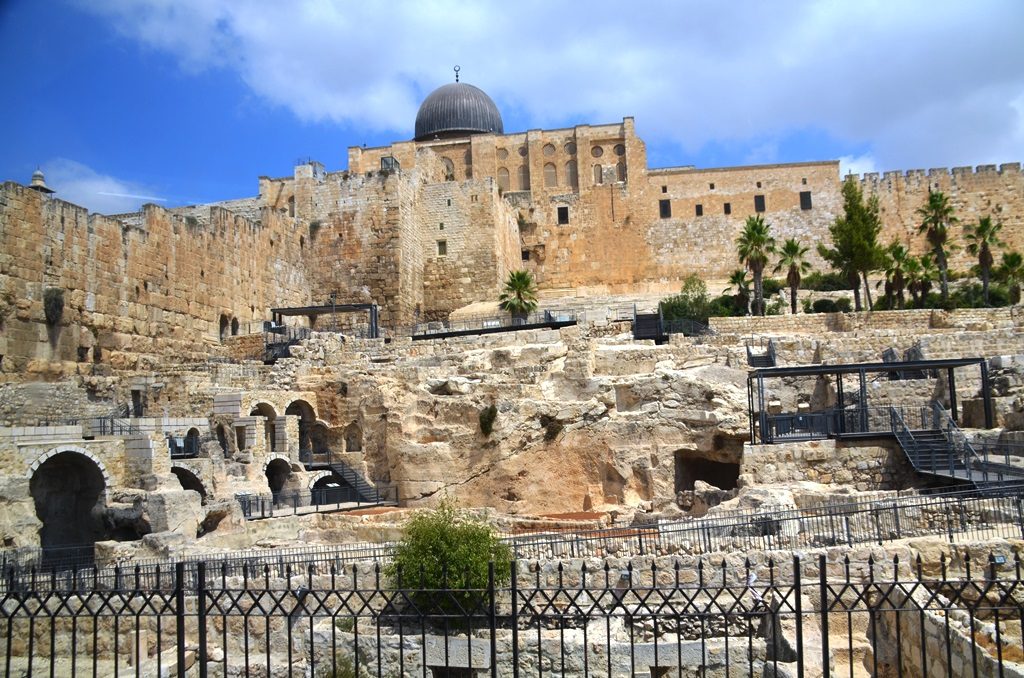
Along the southern side of the Old City Walls, the new excavations can be seen by everyone.
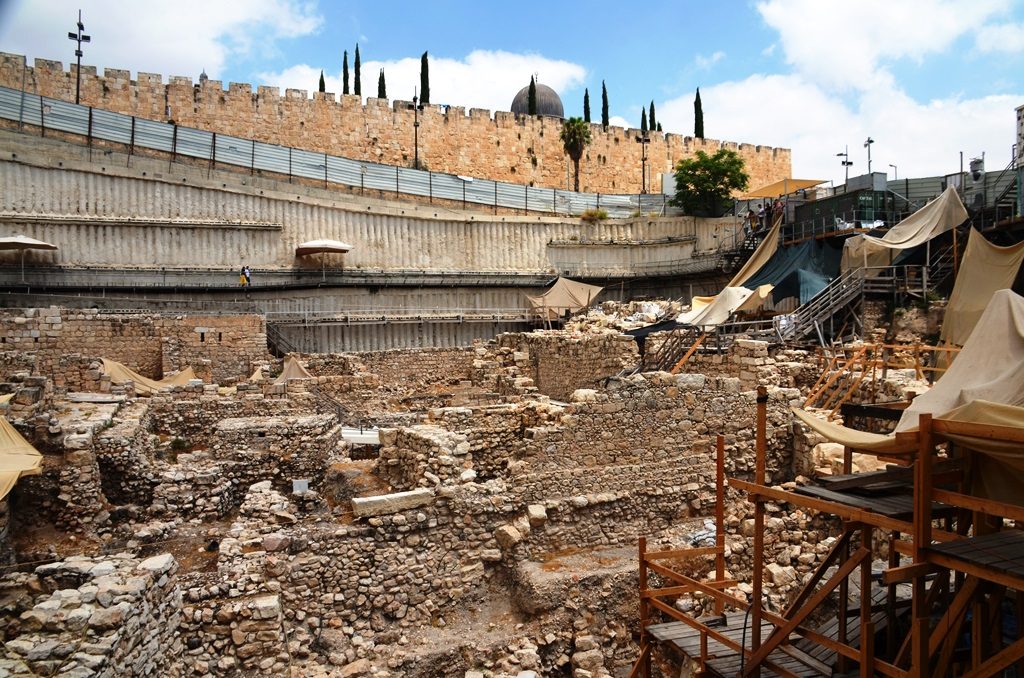
The intricate archaeological work under the Givati Parking lot is another site open to the public.
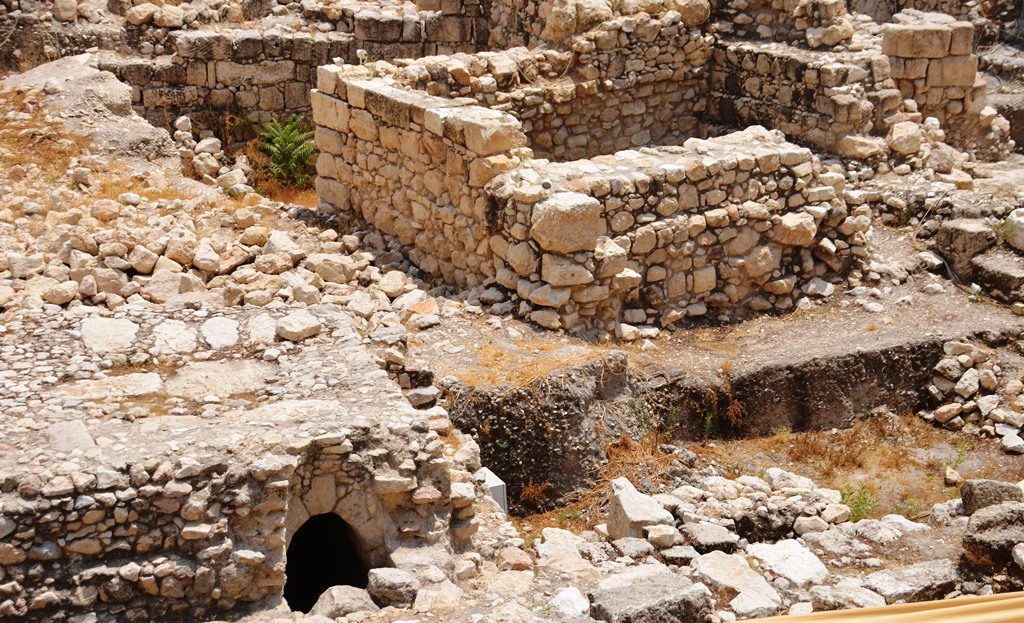
Across from the Old City Walls, not far from Dung Gate, centuries-old houses are being restored.
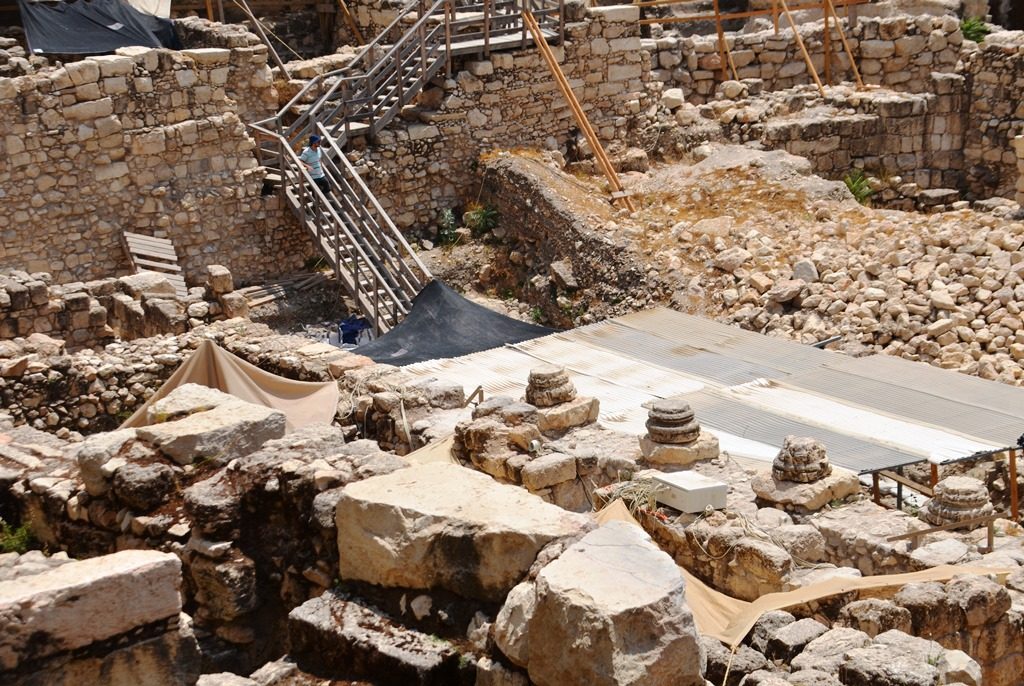
The remains of Roman domination in Jerusalem are on display.
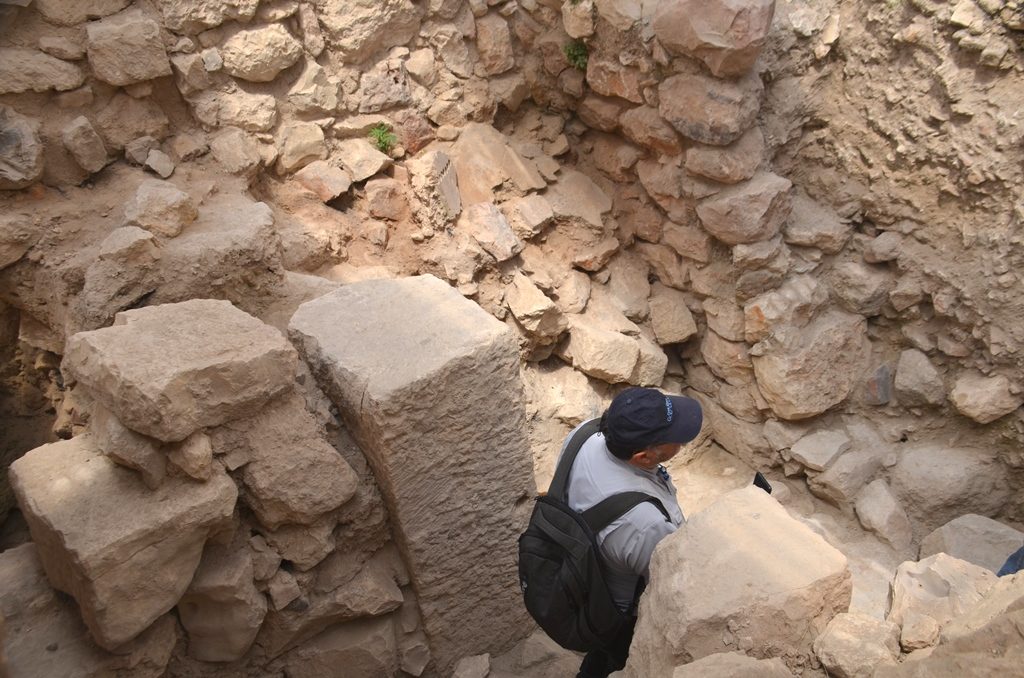
One new discovery was a two-story house. The destruction by Rome of Jerusalem was so powerful that the upper level of this house fell on top of the lower one and a two-meter high piece of the structure was unearthed.
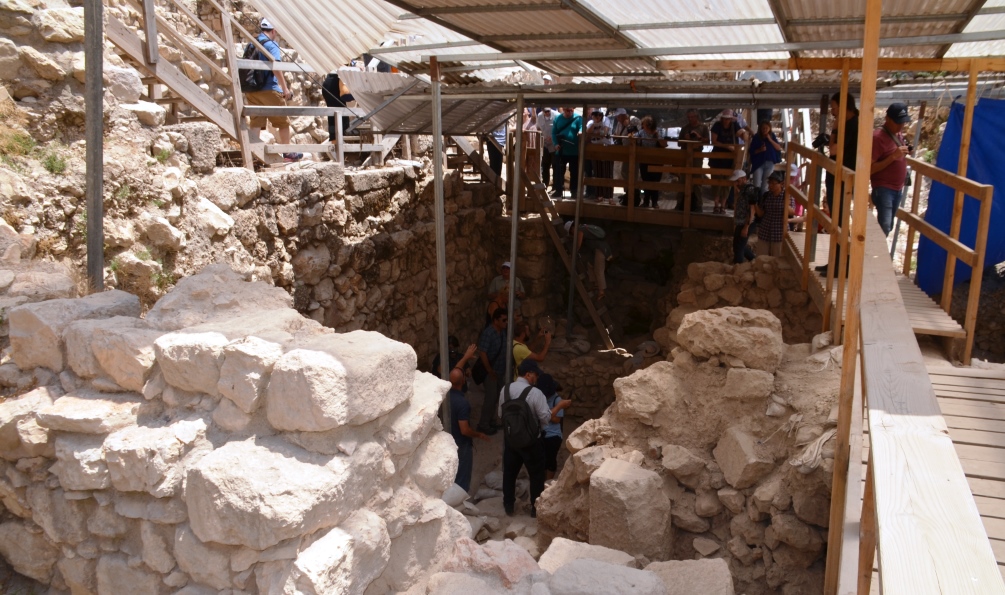
As in other Ir David finds of the historic time period, blackened remnants from the destructive fires were discovered in this house.
I opted to take photos from above and not enter the bedroom below.
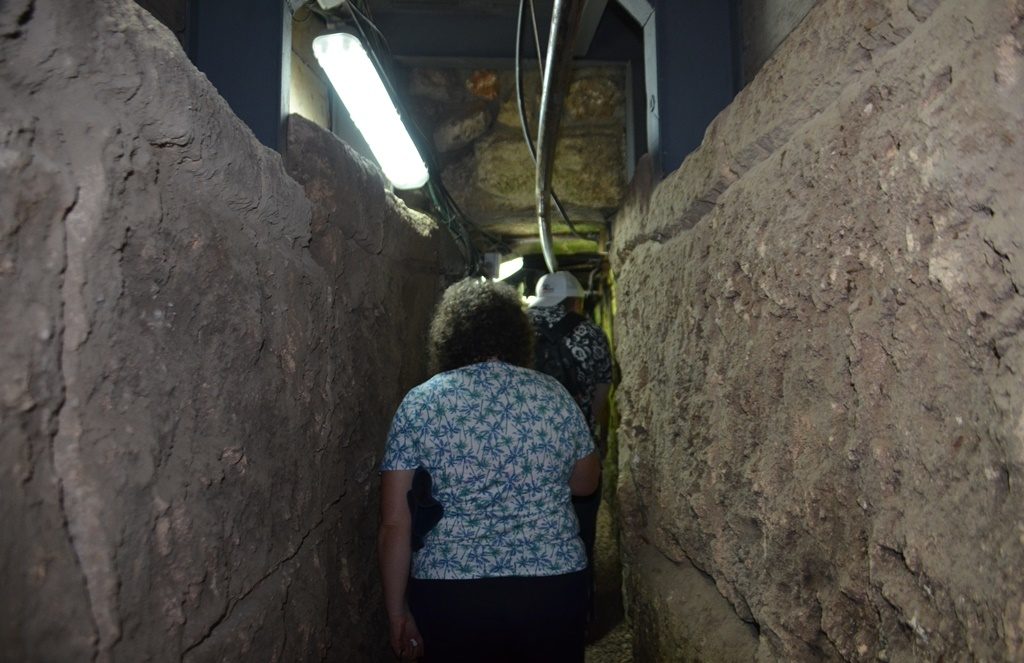
But below we did go.
We followed the path of the drainage system of Jerusalem to the Shiloah pool in the Kidron Valley, which was under the Jerusalem streets in the time of the Romans.
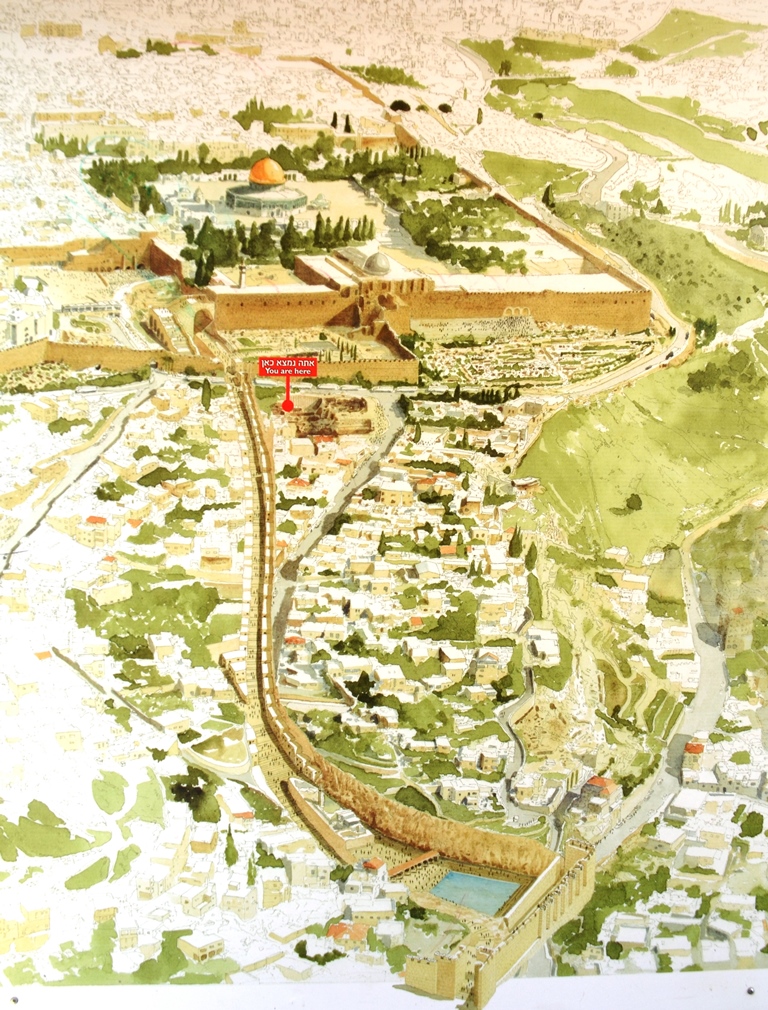
This map shows the route of the planned Pilgrims Path which is being excavated and made safe for tourists.
Another layer under the old street has been found, the drainage channel from which the last Jews of Second Temple times tried to hide and escape from the Romans.
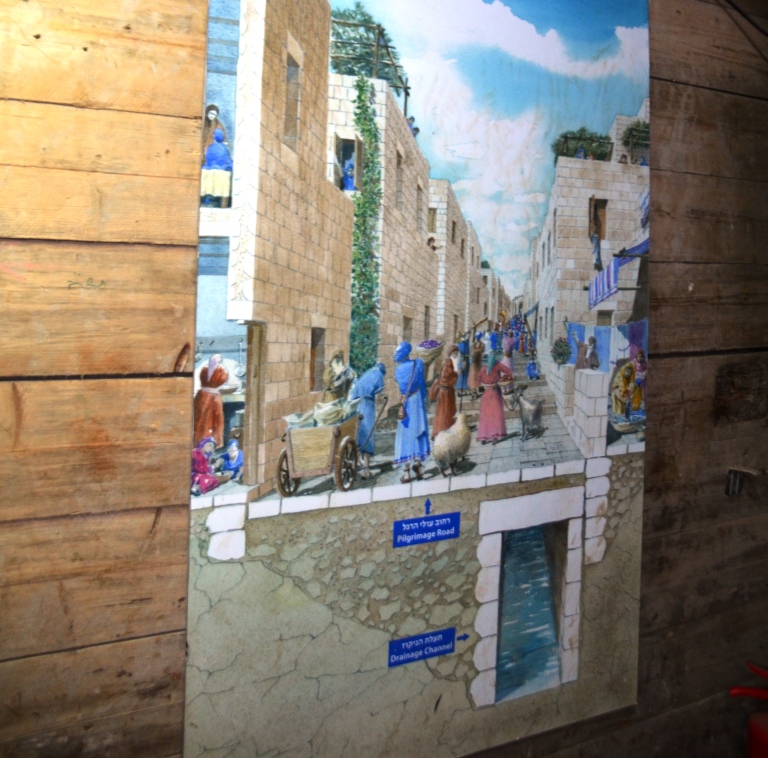
This poster illustrates the street scene in more pleasant ancient times and the drainage channel which ran below it.
However, the last Jews of Jerusalem did not escape to Masada.
They were discovered hiding in the drainage channel by the Romans and all murdered.
The artifacts they left behind are being revealed daily at the Sifting Project in the Zurim Valley.
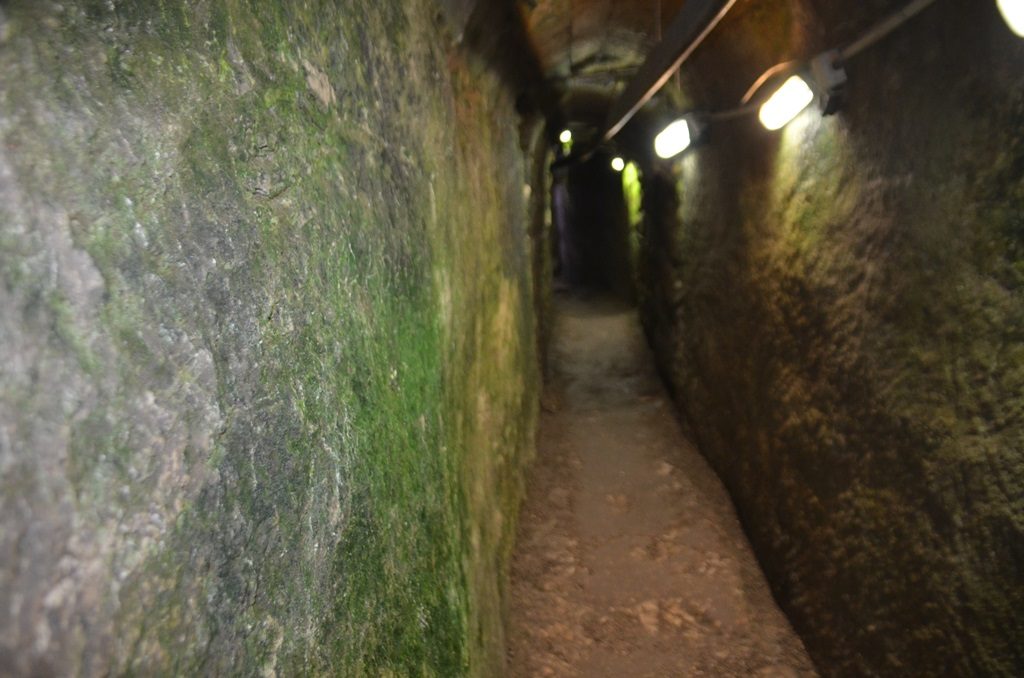
Today large portions of the drainage channel have been careful revealed by archeologists.
From the Givati Parking lot, we surfaced at the base of the Western Wall.
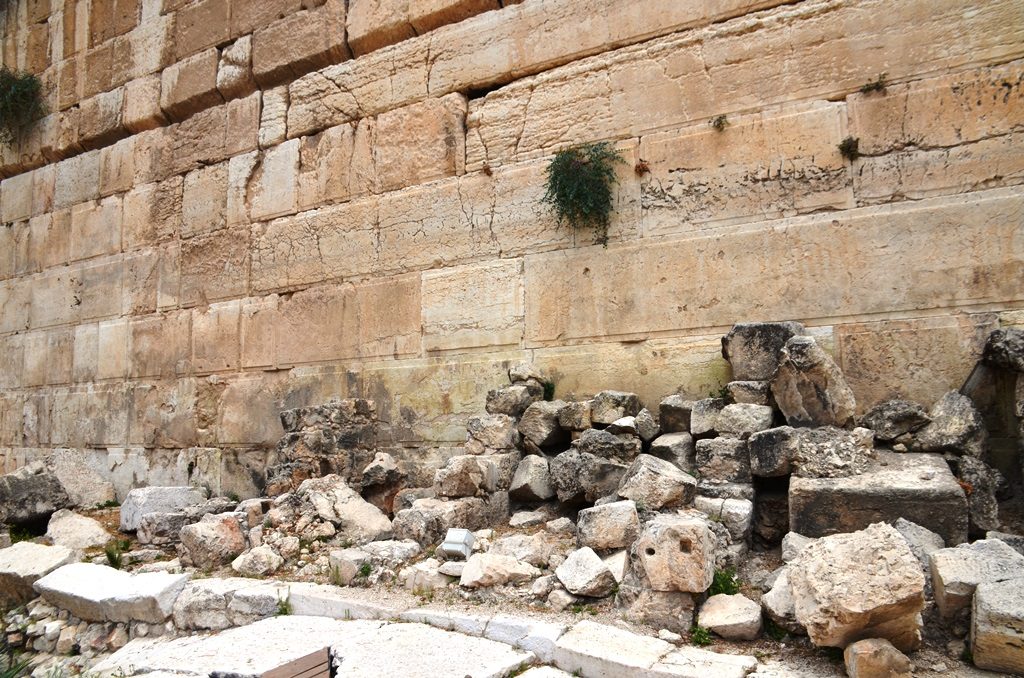
Here are stones from the Roman destruction of the Second Temple, tossed away and remaining today.
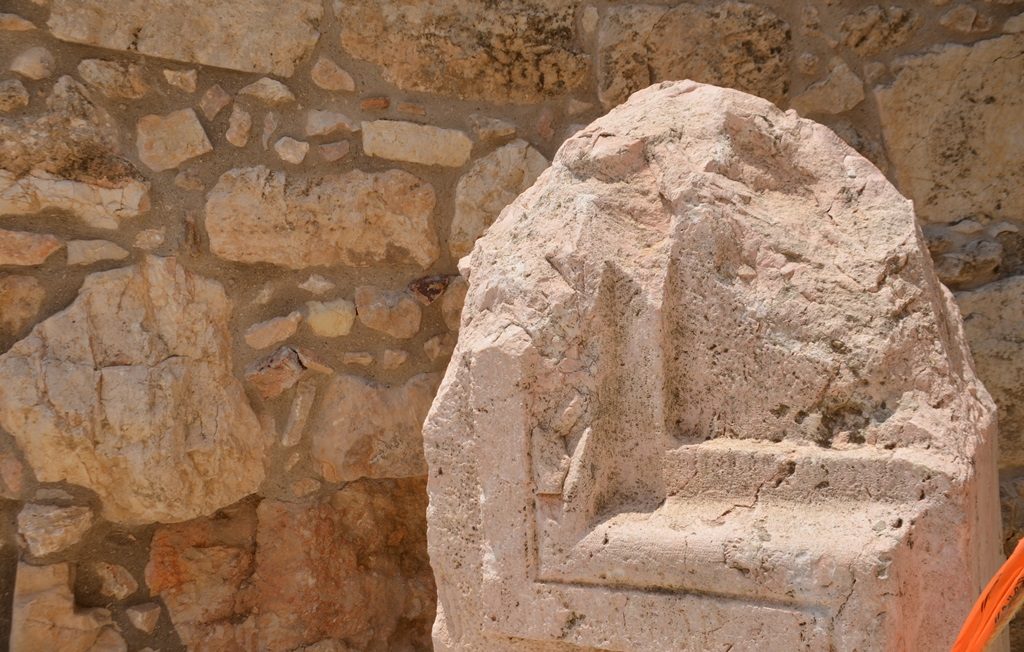
Pieces of stone with Temple carvings are in this area by the Davidson Southern Excavations.
Under your feet, almost anywhere in Jerusalem’s Old City are layers of history.
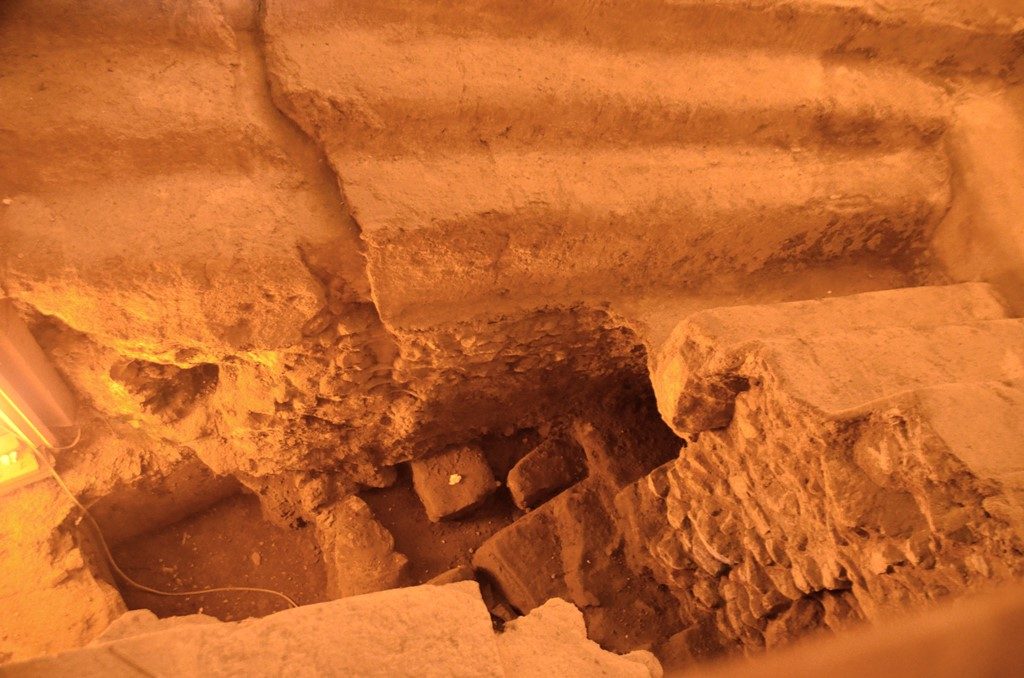
A new excavation under the Western Wall exposed a very old mikvah, a ritual bath.
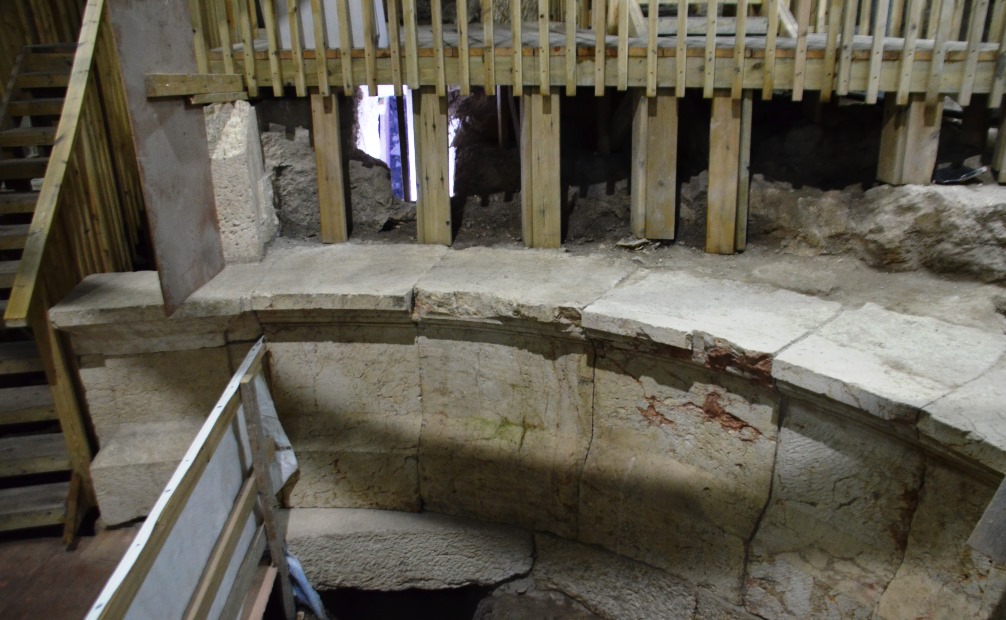
Work in this area leads archeologists to believe the Greeks were building a theater that was never completed.
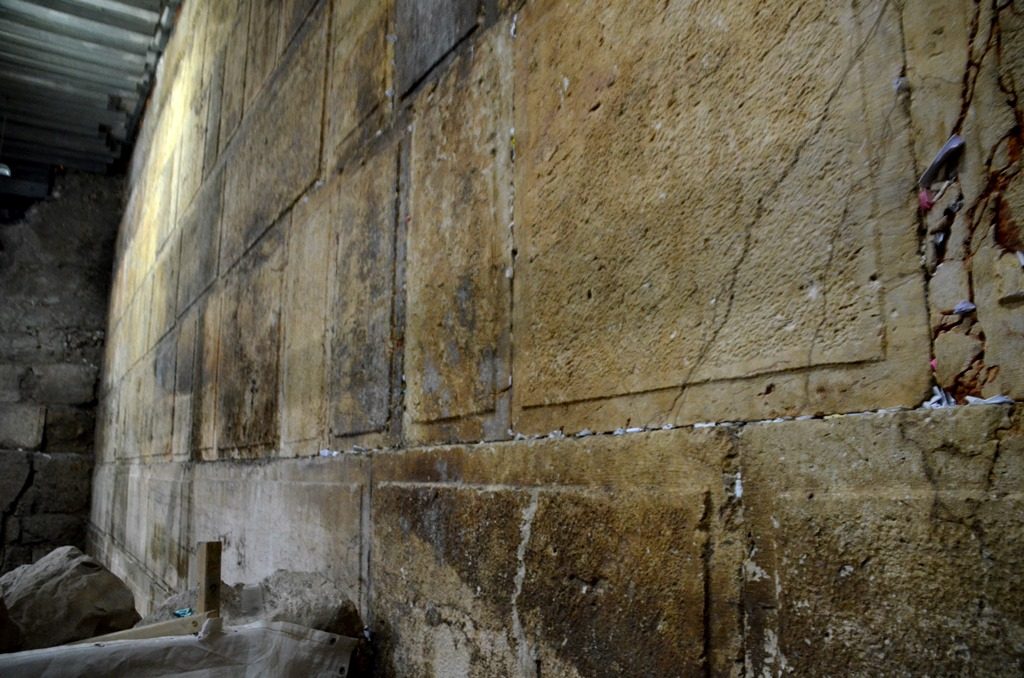
More sections of the Western Wall stones have been revealed under the present street level.
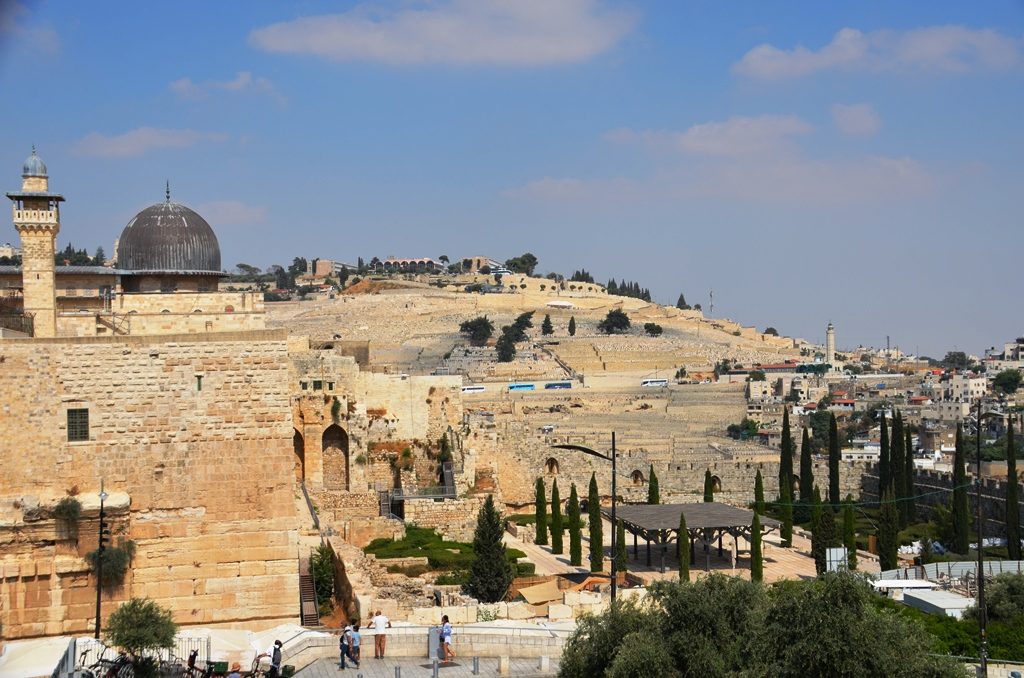
The Davidson Southern Excavation is continuing with new discoveries, with the view of the Mount of Olives in the background and Al-Aqsa Mosque on the left.
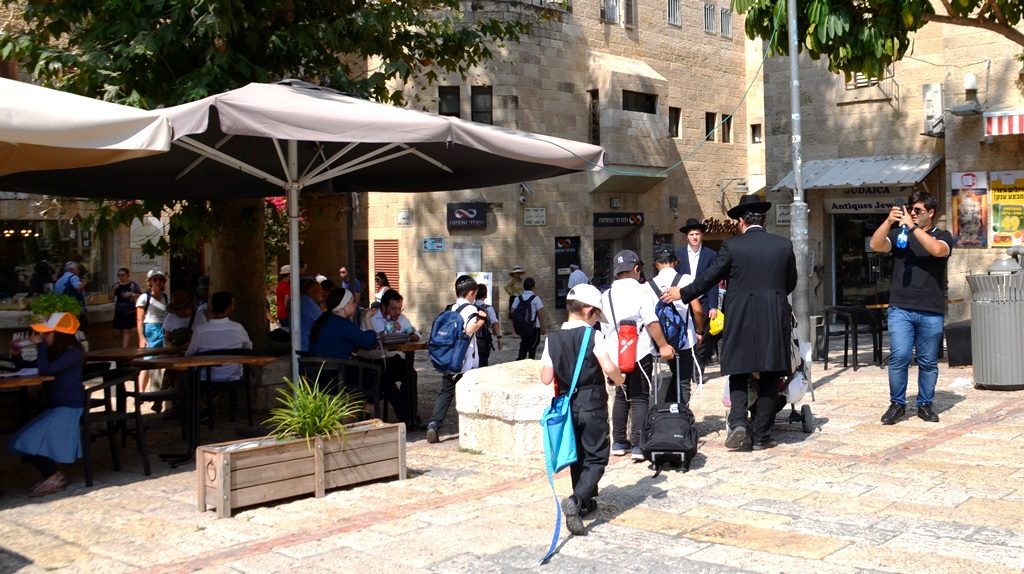
Children, tour groups, thousands of all ages filled the Jerusalem Old City streets during the Nine Days leading up to Tisha B’Av.
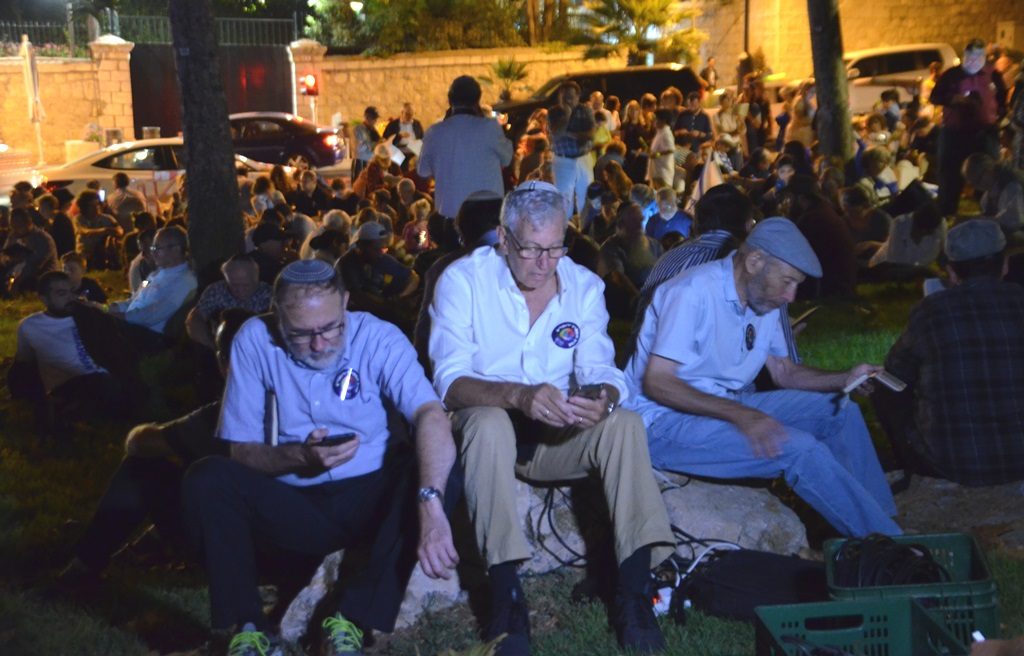
People sat on the ground, on Jerusalem stones to hear Eicha, the book of Lamentations, at night.
Tens of thousands arrived all night long for Tisha B’Av at the Kotel, the Western Wall.
There was so much more I could share, but I will conclude with two favorites on Tisha B’Av.
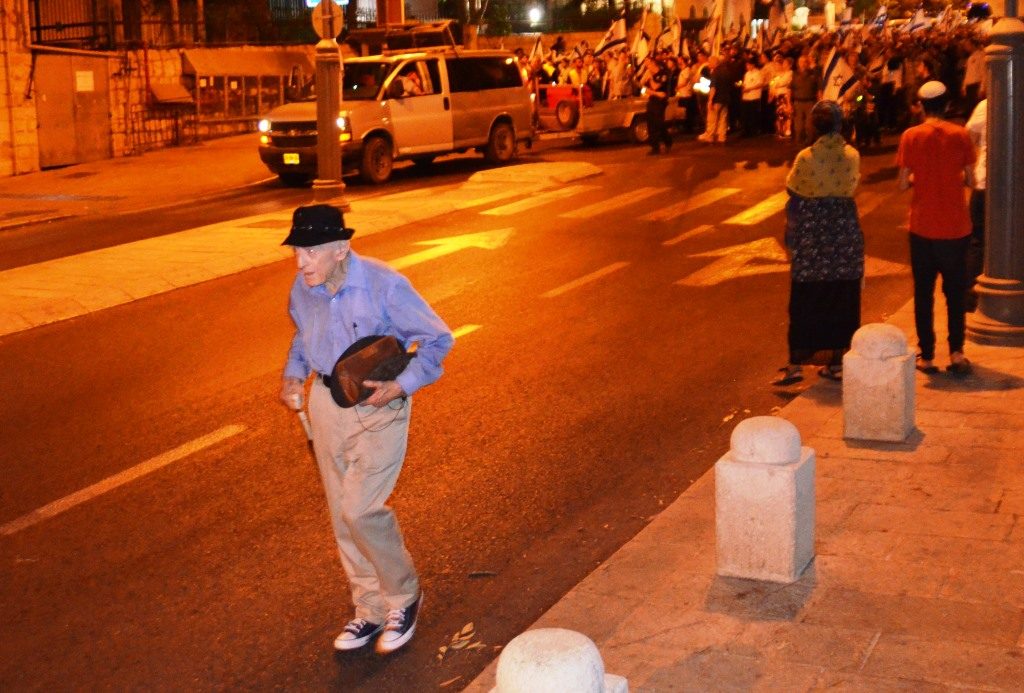
This gentleman with a lovely English accent, born in 1931, took a head start before the group walking around the walls of the Old City. He said that he comes most every year for the last 25-years. Later during the walk, he refused any help, and his only complaint was timing to get to Jerusalem from Tel Aviv after Shabbat.
Kessim, Ethiopian religious leaders, have been coming to the Kotel each year before Tisha B’Av to pray.
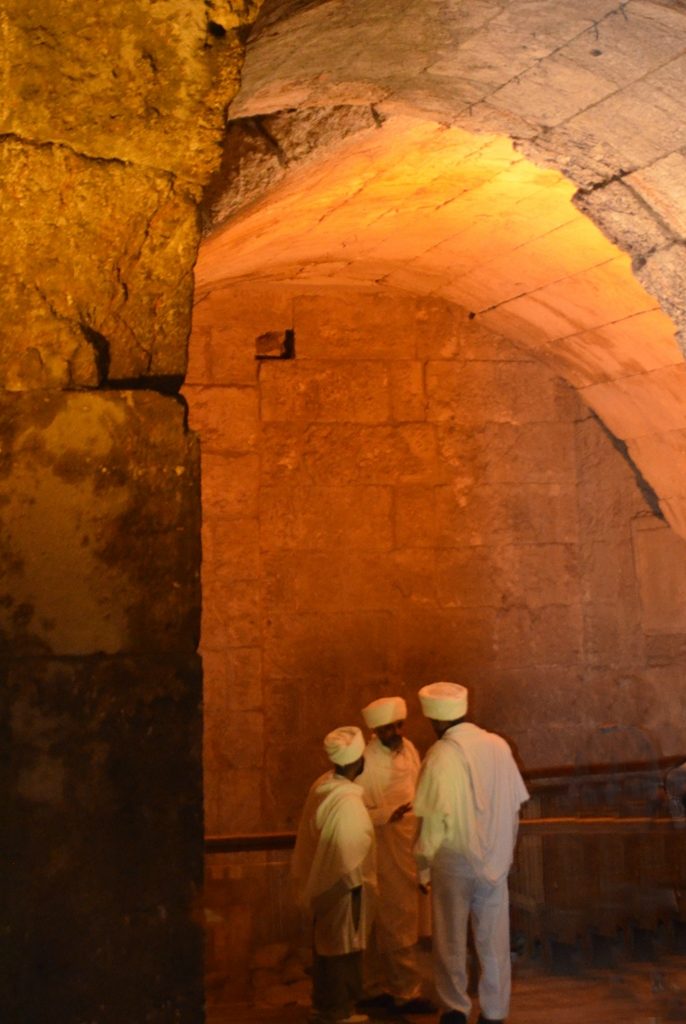
Near the Kotel, under this old archway, three of the men, from the larger group of Kessin all dressed in white who were on a tour, stopped to talk.
Think about it–their traditions went back to the times of the First Temple.
They arrived in Jerusalem to find Zion, Jerusalem, the First Temple had been destroyed.
Another ancient war, another layer of history yet to be revealed.
On and below the Jerusalem streets, old and new, constantly evolving.
Though 15 Real Photos of Arab Girls was the most popular RJS post.
I hope you enjoyed these bits of archeological finds, there are more to share next time.
SUPER photos – they should get a prize,
Wishing you a happy tu b’av,
Betty
Thank you!
As usual your posts are most interesting and informative and I appreciate receiving them.
Mazal tov on your forthcoming simchot and to the bat mitzvah girls It’s amazing how much your family has increased since you made aliya What a blessing!
Thank you. Thank you. Shabbat shalom
Incredible photos. Loved seeing you last night. <3
Thank you. I loved seeing all of you last night! Shabbat shalom
Pingback: Rediscovering Ancient Jerusalem before Tisha B’Av – The Real Jerusalem Streets
Pingback: What’s New in Jerusalem for Hanukkah? – The Real Jerusalem Streets